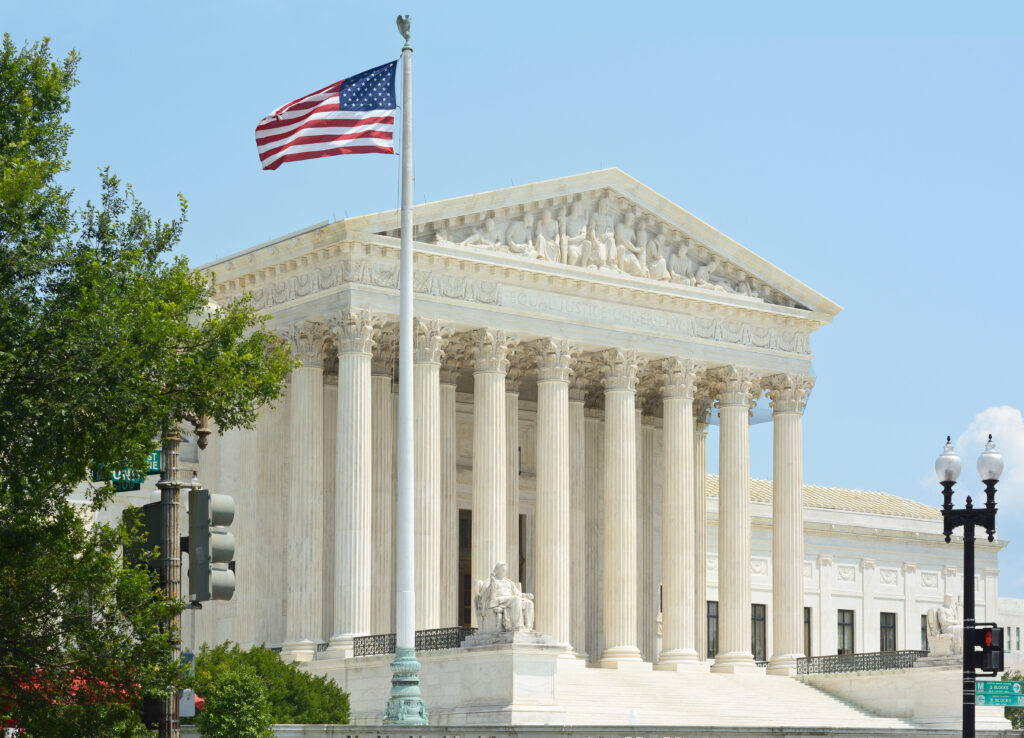SCOTUS Won’t Hear Case Raising Controversial Theory on State Power in Federal Elections

The U.S. Supreme Court declined to review a lawsuit from 27 Pennsylvania Republican lawmakers seeking to revive the right-wing independent state legislature (ISL) theory, which posits the U.S. Constitution affords state legislatures exclusive authority to regulate federal elections.
Despite the U.S. Supreme Court’s previous rejection of the fringe constitutional argument in its 2022 Moore v. Harper decision, Republican litigants across the country have repeatedly attempted to resurrect the dubious legal theory.
The Supreme Court’s decision means that current voting rules will stay in place — including President Biden’s pro-voting executive order and Gov. Shapiro’s automatic voter registration policy.
Sign up for our free newsletters so you never miss a new lawsuit or court decision that could impact who takes the White House this fall.
The case at the center of today’s order — which a federal district court judge dismissed in March — invoked the right-wing theory as the basis for challenging a series of state and federal executive actions designed to expand voter registration.
The Keystone State lawmakers specifically took issue with President Joe Biden’s 2021 executive order aimed at facilitating voter registration and promoting voting access nationwide. The suit also sought to void a set of Pennsylvania-specific voting policies, including Gov. Josh Shapiro’s (D) 2023 directive that implemented automatic voter registration for residents obtaining driver licenses and ID cards.
Under the legislators’ reasoning, Biden, Shapiro and other state and federal defendants “usurped the authority of Pennsylvania legislators…by changing Pennsylvania election laws via Executive Orders” and “nullifying” the votes of individual legislators in violation of the U.S. Constitution’s Elections and Electors Clauses.
Without reaching the merits of the ISL claims, a federal district judge tossed out the suit for lack of standing, writing that the “plaintiffs, as individual legislators, do not have standing because they have not alleged any particular injury that is not also suffered by each member of the Pennsylvania General Assembly.”
The legislators concurrently appealed the case to the 3rd U.S. Circuit Court of Appeals and the U.S. Supreme Court, where they argued that individual legislators have standing under the Elections and Electors Clauses. Initially, the lawmakers asked the high court to bypass the 3rd Circuit and resolve the standing matter on an expedited basis so as to ensure the resolution of the case prior to the November 2024 election, but the Court declined to do so.
Although today’s order dismisses state Republicans’ appeal to the Supreme Court, their appeal in the 3rd Circuit remains pending. Accordingly, the lawmakers could bring the case back up to the nation’s highest court after the 3rd Circuit renders its decision.
Republican secretaries of state, GOP members of the U.S. House of Representatives as well as other right-wing entities — including the Claremont Institute — all submitted “friend of the court” briefs urging the justices to take up the case.
Later this month, the Court will have another opportunity to consider a cert petition premised on the ISL theory. At a conference on Oct. 18, the justices will weigh whether to take up an ISL-centered appeal from Montana’s Republican secretary of state seeking to reinstate a slate of voter suppression laws that the state Supreme Court struck down in March.
It takes four justices to agree to hear a case.
Meanwhile, two other federal lawsuits led by Missouri and Texas Republicans similarly take aim at the Biden-issued executive order and both rely in part on the ISL theory. Accordingly, there remain other opportunities for courts to weigh in on the validity of the executive order.